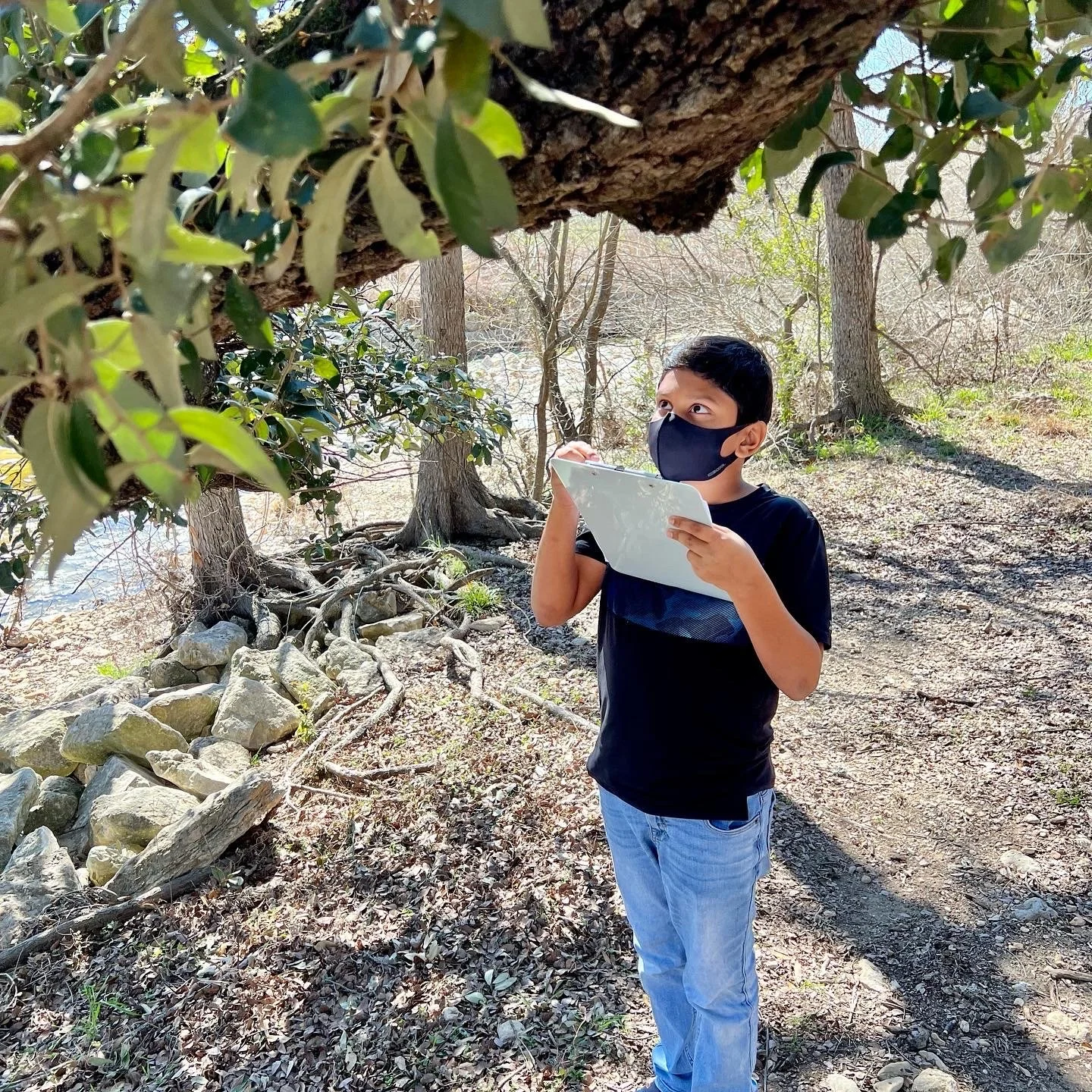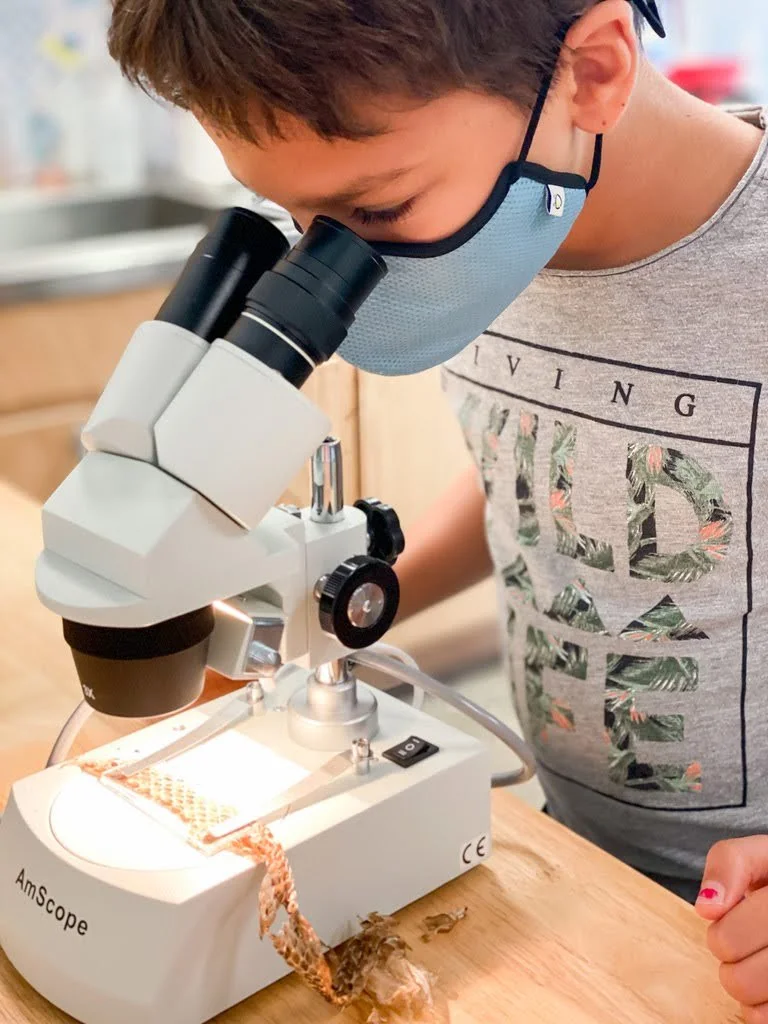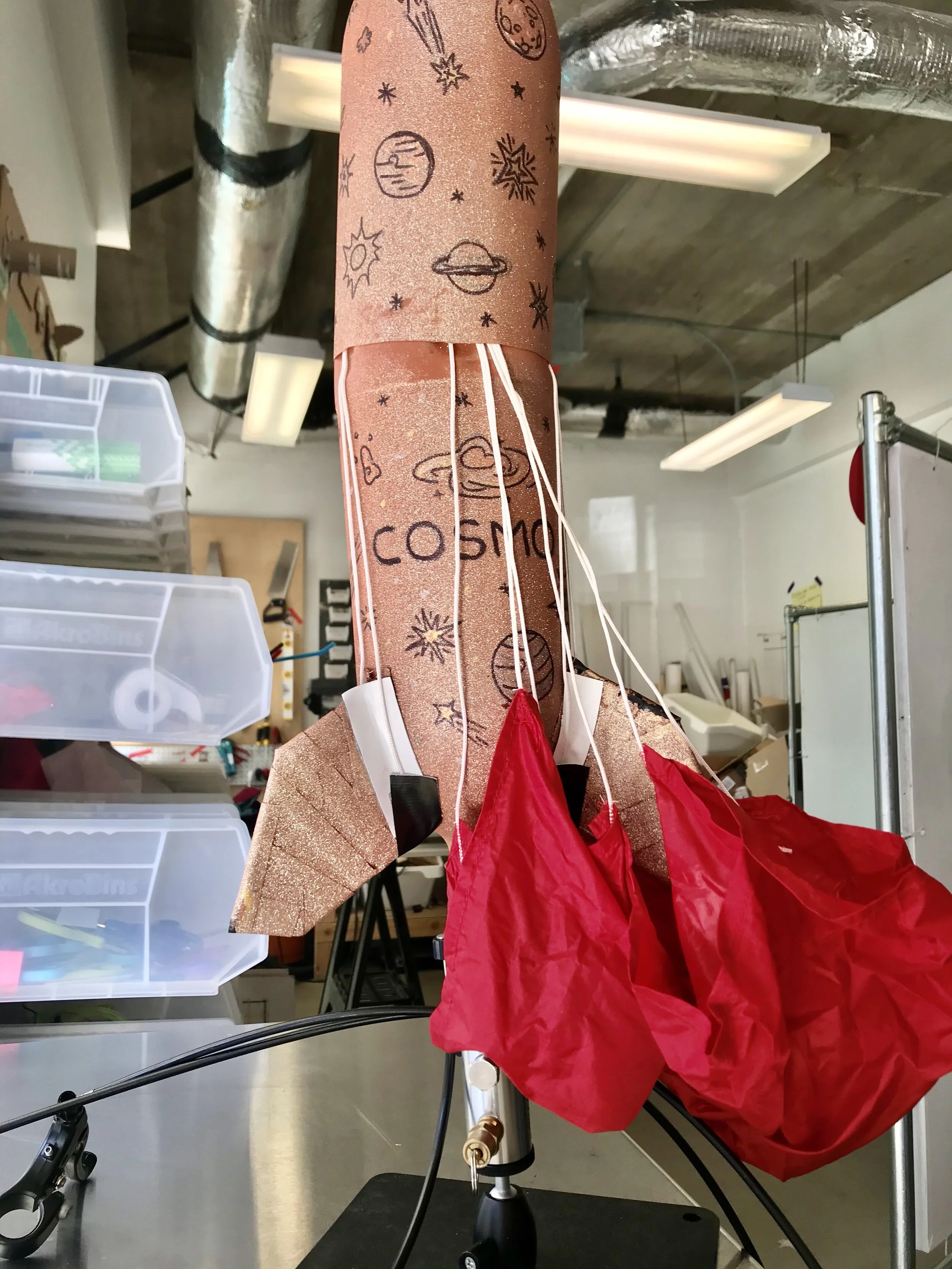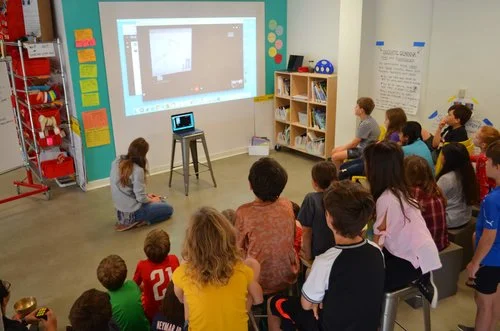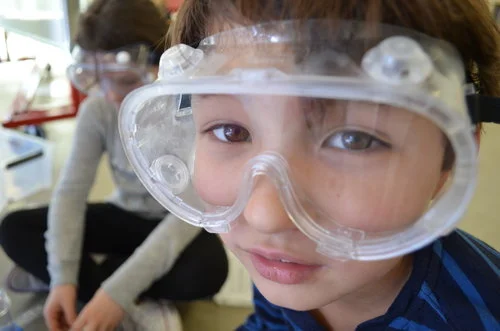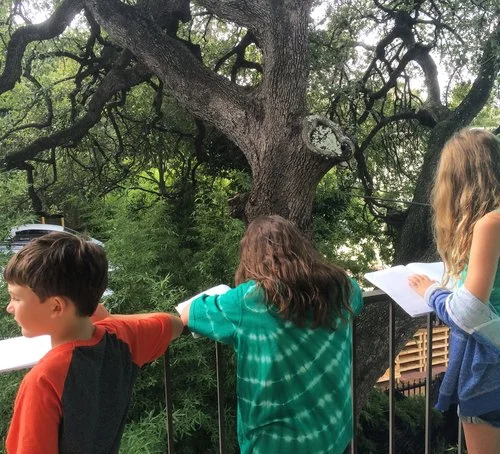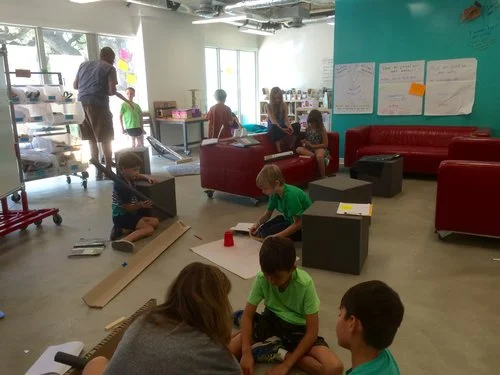Unit Zero: What Do Scientists Do?
One day in September, a perplexing set of objects awaited Violet and Aqua Band learners in Science Block. Simply described, they were cardboard tubes with the ends blocked off by duct tape, and with four strings protruding from small holes in the sides. When learners pulled the four strings, however, surprises ensued. The four strings didn’t react as one might have expected. Inside the tubes, where no one could see it, a mysterious mechanism governed the action of the strings. What was it?
Over the next week or two, the learners investigated, working in small collaborative groups. They turned the tubes over and around….
Read More
Awakening to Climate Change: A School-Wide Inquiry
She looked straight into my eyes and said, “Mr. Cooley, imagine if you heard people talking about climate change all the time – from adults, TV, etc. – but didn’t know what it was. How would you feel?”
Annelise, a learner in Emerald Band, spoke these words to her science teacher in March as they discussed her favorite moment of the year in a reflective interview. She continued, “I remember the moment when I “got” climate change. Before that I had realized that something was wrong, and heard about it on TV and radio, but didn’t understand it. I kind of felt left out of the conversation but now I actually figured out what it really means.” Annelise’s reflection speaks to the intense experience of growing up in a time when climate anxiety is omnipresent and talk of this complex situation is constant….
Read More
From Concept to Process: Teaching the Nature of Science
How do you prevent misunderstandings at a school like Long-View, where learning is student-directed? Under what circumstances does a teacher provide the "right answer," especially in the science classroom? Moreover, what constitutes scientific consensus? According to who? What does it mean to be "right"? Concern about the right answer belies a common misconception about science education—a misconception resulting from faulty science education—premised on the understanding of science as a body of settled knowledge.
Recent developments in science education reflect a shift in emphasis from science as a body of knowledge to a broader view of science that addresses the nature of scientific knowledge itself and the skills required to access and evaluate media accounts of science. In short, the goals of science education have shifted from scientific knowledge to science literacy—the scope of practice in the field of science has broadened from "how the scientific community produces science information, [to] how media repackage and share the information, and how individuals encounter and form opinions on this information….”
Read More
Engineering Project: Rocket Launch
We use Pease Park daily and last week, the park's value reached new heights! Blue and Purple Bands tested learner-designed-and-built rockets, shooting the vessels high above Live Oak Meadow.
The rocket science unit began in January with both virtual Science Blocks and weekly in-person build workshops. During these build workshops the kids spread out in our parking lot, which served as our temporary, very-well-ventilated makerspace...or should we say, “The Long-View Jet Propulsion Research Facility”? The learners were studying astronomy and for their engineering project associated with this unit they learned about the physics of rockets….
Read More
Field Experience: Environmental Science
To kick off their environmental science unit, Teal and Indigo Bands headed out this morning for a half day excursion to Whirlpool Cave through Austin Watershed Protection. They climbed deep into the Edward’s Aquifer via caves to explore Austin's unique Karst topography and learn more about our city’s watershed. This experience will be helpful as they later move into a project focused on water quality in which the learners will develop their own water filtration systems.….
Read More
Skype Interview with NOAA Climate Scientist
Expanding students’ perspectives of the world around them through exposure to thought-provoking topics and thinking critically about them, learning from authentic sources, and interviewing professionals experienced in their field is the norm at Long-View.
Last week, Navy and Auburn Bands tapped into National Oceanic and Atmospheric Administration (NOAA) Climate Scientist Andrew Kren’s expertise in the area of remote sensing data as it relates to weather research. Dr. Kren’s work focuses on…
Read More
All Hands on Deck: Biomechanics Engineering Challenge in Indigo Band
Problem solving is an integral part of the learning experience at Long-View, and Indigo Band learners are working on the unique, not to mention complex, endeavor of constructing a prosthetic hand that can handle (pun intended) the task of grasping and lifting a cup of sand with a weight of at least 200 grams. “One of the biggest challenges is that we have to design it using materials either from the Maker Space or from home,” says Esme. “Marin’s prototype is really impressive,” she adds. “She’s even thinking about connecting a motor to it!”
Read More
Science by Design
Science at Long-View is a dynamic endeavor. Red and Turquoise bands began the year with a study of sound and light waves, and our young scientists could be found with tuning forks, ropes, and flashlights in hand as they created different kinds of waves and observed their motion. In group discussions, learners shared their observations, and debated and iterated their conclusions. Once they understood the fundamentals of waves, the learners designed and executed their own experiments in response to the question, "What happens to sound waves as they move away from their source?" As they designed, carried out, and presented their investigations, these young scientists worked to build skills like procedural design, data analysis, clear writing, mental and physical modeling, and graphing, which will continue to shape their work as they progress through Long-View's science program and beyond....
Read More
Scientific Inquiry Soars to New Heights
What does it mean to be a scientist and to “do science”? Over the last months, our Long-View learners have worked to better understand that, as scientists, we are always asking -- and trying to answer --questions about the natural world.
There are four ways that scientists go about this…
Read More
Developing Key Ways of Thinking in Science Block
Since the start of the school year, Long-View scientists have been collaborating in small groups to develop their understanding of experimental design. Because we will be using these skills in our science practice all year, it is important to start off with a strong basic grasp of how to how to design and perform a fair test experiment, how to look for patterns and trends in our data, and how to make evidence-based claims that answer the questions we explore with our work. In order to support sense-making of what our data is actually revealing to us about our questions, we also spent time learning about science concepts like force, velocity, gravity and friction.
This models the approach to science that we take at Long-View....
Read More



